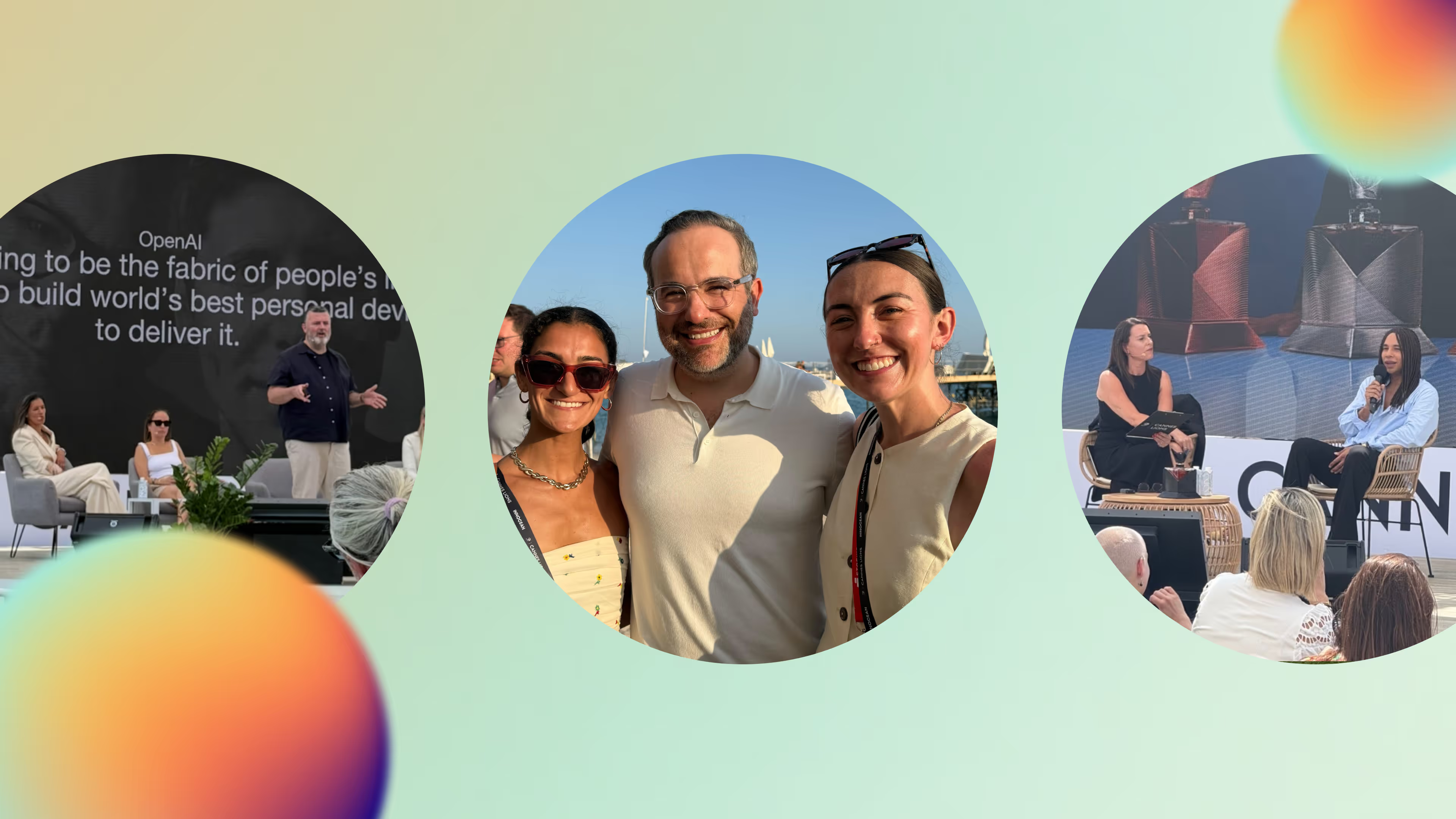Cannes Lions 2025: What Happens When Creativity Gets a Bionic Arm

After a week at the Cannes Lions International Festival of Creativity with the SPCSHP & MSQ crew, one thing became crystal clear: if last year was about AI's potential, this year was about learning how to live with it. The conversations weren't asking if AI belongs in creativity anymore. They were asking how we use it responsibly, creatively, and in service of people.
As a creative agency that's boldly human while embracing technology to accelerate ideas, what emerged was a fascinating tension: in a festival obsessed with the future of AI, the most inspiring moments came from watching brilliant humans do what they do best.
The Paradox of Progress
We're living through what Sir John Hegarty aptly called "the paradox of progress." AI has democratized creativity to an unprecedented degree. Suddenly, everyone's a creative director. Yet this hasn't diminished the value of human creativity; it's amplified its importance.
Mustafa Suleyman from Microsoft AI put it beautifully: we're moving from search giving us information to AI giving us knowledge. But knowledge without wisdom, data without empathy, efficiency without feeling create what one speaker called "emotional neglect." Emotional neglect is the antithesis of everything that makes advertising work.
Tor Myren at Apple reminded us that computers are "strong and logical, but it's not always the best path." Their AirPods campaign featuring real families dealing with hearing loss wasn't born from algorithmic optimization. It emerged from understanding that people are simply better at making you feel something.
The Death of Size, The Re-Birth of Boldness
Sir John Hegarty's insight hit home: "Size is no longer a strategy, it's now inertial as it breeds bureaucracy." When gaming studios of five can beat Epic Games, the old advantages of scale have become liabilities.
"It's the bold that beats the bureaucratic," Hegarty declared. The competitive advantage isn't in having the biggest team anymore. It's in having the boldest ideas. Nestlé's Aude Gandon proved this with 'Creative Pulse,' her program bringing creativity back to the forefront because creativity means business.
At SPCSHP, we've always believed in being boldly human. What Cannes 2025 confirmed is that this isn't just our philosophy. It's becoming the industry's survival strategy.
The Craft Renaissance and Trust Imperative
Musician James Blake's session on fundamentals resonated deeply. His point about not short-changing the learning process (14 years of studying music before approaching a laptop) feels especially relevant when AI can generate campaigns in seconds. P&G's Marc Pritchard warned against getting "lured into the content hamster wheel"—when every brand has access to the same AI tools, differentiation comes from depth of human insight and quality of creative execution.
Simultaneously, Richard Edelman's research showed people turning to brands not just for products, but for security and "quality facts" in an increasingly unreliable information landscape. As technology becomes more sophisticated, human qualities like trustworthiness become more valuable, not less.
The Human Moments That Defined the Week
While industry leaders debated AI's future, the week's most memorable moments came from watching talented people excel at being human.
Our SPCSHP Stars: Mallory Cross and Kaitlyn Powers owned their first Cannes stage moment. At the Empower Café's Power Curve panel, they showcased what makes them special as "hybrid" talents, professionals who've built careers across strategy, production, creative, and more. Their work "Stubbornly Succeeding" was featured at the Palais, taking a word weaponized against women and completely flipping it. Watching them screen their all-woman cast and crew film felt like watching two people refuse to apologize for taking up space.
Authentic Influence: Camila Coutinho's session "On and Off: How to Balance Relationship with Social Media" demonstrated the long game of authentic influence. After 20 years as a content creator, she's proven you can build a business without losing the personal connection that made people care about you in the first place. She chooses to live her life first and share lessons on her own timeline.
The Ritual Revelations: The Marketing Society & MSQ's intimate Martinez lunch revealed fascinating insights from their Rituals study. The research explores why repeated behaviors matter and how brands can thoughtfully become part of people's lives without being intrusive. It's the difference between forcing your way into someone's routine and being invited to enhance something they already value.
The Network Effect: From MSQ's kick-off event to Lindsay Slaby's Sunday Dinner at the Brand & Culture villa, the serendipitous connections reminded me that formal sessions give us frameworks, but these conversations give us nuance.
The Mission Beyond Purpose
The most forward-looking insight involved moving beyond traditional brand purpose toward mission-driven work. When technology becomes truly revolutionary, companies need missions that justify their existence. Google DeepMind developing AI to decode DNA and sharing it freely, OpenAI partnering with Jony Ive to create better personal devices. These aren't just purpose statements, they're commitments to using technology to change the world in measurable ways.
Looking Forward: The Future is Human + Machine
The path forward isn't to fight technological progress or embrace it uncritically. It's to find the human truth within technological possibility. AI will become as fundamental as Photoshop or Google Analytics. The question isn't whether to adopt it, but how to use it in service of more human, authentic, emotionally resonant brand experiences.
At SPCSHP, we're not just adapting to this future. We're helping build it. Being boldly human in an AI-first world isn't about rejecting technology; it's about ensuring technology serves humanity's deepest needs for connection, meaning, and authentic experience.
The future of creativity won't be human versus machine. It will be human with machine, in service of ideas that make people feel something real. The more artificial intelligence becomes, the more authentic humanity matters. And that's not a threat to our industry. It's our greatest opportunity.